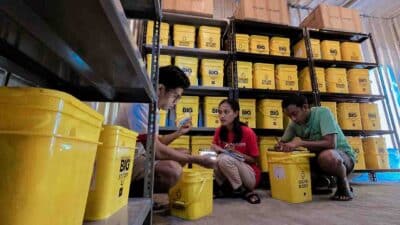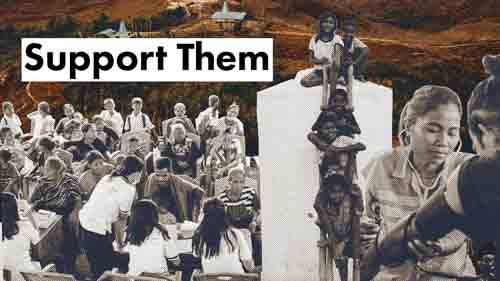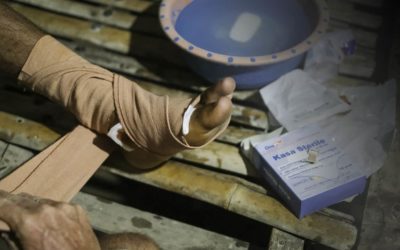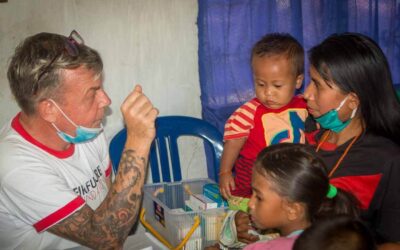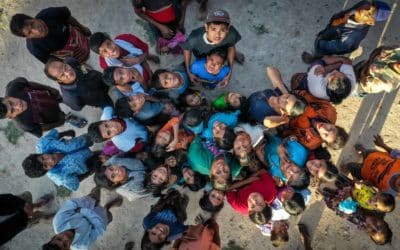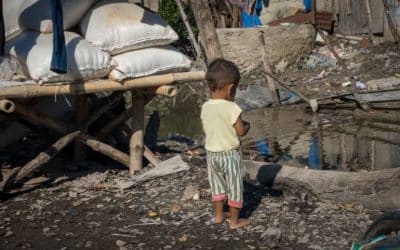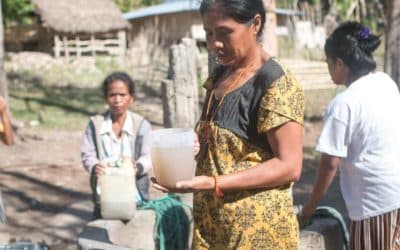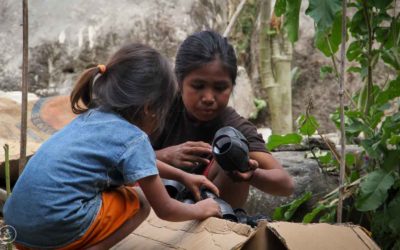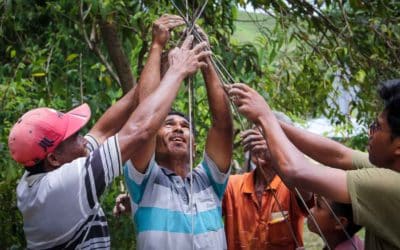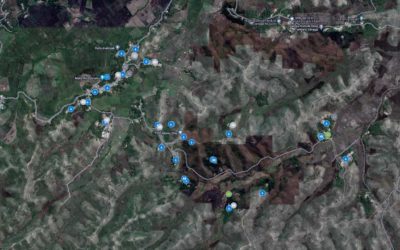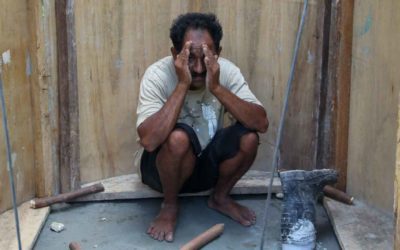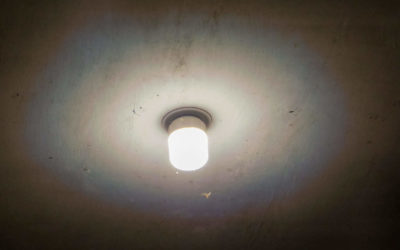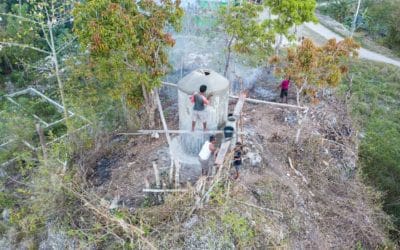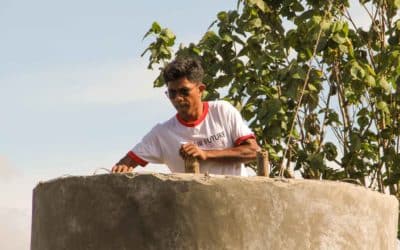Illness often begins long before someone arrives at the hospital. Our campaigns on smoking, waste management, alcohol, and sexual health display straightforward messages across schools and village walls in local languages. Through simple posters, talks, and games, we help protect thousands of children.
Donate
Support Care
Programs
All projects
Quick News
Field updates
Stories
Field stories
Welcome to the Fair Future News! Our teams have crafted each article, story, and update.
These pages showcase unique content reflecting our mission, work, and community interactions.
True stories. Real people. Humanitarian action in motion.
Here you’ll find stories from the field—100% real, 100% original. Every article is written by us, by those who live these moments, walk these roads, and treat these illnesses. We write them by hand, after the long days, often from tents or remote villages, because we believe in showing what’s real.
The people, the lives, the wounds, the repairs—this is not fiction. This is our daily reality in ultra-rural Indonesia. Every photo is taken by us. Every word comes from those who act. From emergency responses and clean water to child health and malaria cases, these stories reflect both the daily struggles and the incredible strength of those we serve.
Our News page is more than just updates. It’s a record of direct action. A collection of emotions, medical cases, construction progress, and social encounters. We don’t write for clicks—we write for those who care, those who want to know, and those who support our mission.
It’s raw, human, sometimes difficult, but always true. Read them, share them, let them move you. This is how change begins—with knowledge, emotion, and connection.
Alex Wettstein – Fair Future Foundation – Updated in June 2025
Your donation becomes real medical care
Help us reach the unreachable. Every franc you give funds medicines, dressings, tests, and clean water to prevent sickness. It powers solar lights for cold vaccines and night care. It keeps Kawan Sehat agents and Fair Future teams travelling hours to remote villages without doctors or clinics.
Our latest articles
Together we can make it
Let’s do it together and hold hands to reach the moon. Ensure that the primary medical care program for children can continue as the needs are enormous here in eastern Indonesia. Malaria is ravaging, expectations are high, and we lack the means to buy medical equipment, medicines and everything they all need to get better…
Malaria outbreak in East Sumba, Indonesia
Malaria is one of the most severe public health problems in the world. Here in Indonesia, and especially in the eastern regions, it is one of the leading causes of death and disease. Children under five years old and pregnant women are the most affected groups. The problem in East Sumba is the staggering rate of cases affecting families and the anti-malaria drugs that are unavailable or too expensive.
8 billion equal people? What about the food?
Eight billion people on earth: Are we going to starve? On the one hand, there is population growth. On the other, the world’s resources make it possible to feed human beings. How to reconcile the two? Today and tomorrow, will we all be able to provide for ourselves?
Help us load the medical truck
As part of the project for access to primary medical care for children in rural areas of eastern Indonesia, the foundation needs you to balance its budget. We want to be able to load our medical truck as much as possible in order to reduce logistics costs. They will carry more than a ton of medical equipment, medicines, sterile equipment, and first-aid materials.
Consuming unsafe water can look like this!
In these few images taken at the end of October 2022, in a village in East Sumba, more than a hundred people have access to this unique water source. A well was dug by hand more than ten years ago and is almost always dry. People have to queue to get a few litres of water that is totally unfit for consumption and dangerous to their health.
Report of the water connections project
Fair Future regularly presents reports establishing what we have achieved in all our necessary actions. The document that we offer you here explains what, all together, we have been doing over the past twelve months as part of this colossal project, Water Connections, Mbinudita Site. As a reminder, this project aims to provide access to drinking water and sanitation to more than 2,500 people whose homes are scattered over nearly 10 hectares.
New complete and healthy sanitary facilities in Ritta, East Sumba
We do not stop; the teams of Fair Future and Kawan Baik foundations have already built, as part of the #waterconnections project, site of #mbinudita #sdmbinudita, more than thirty (30) tanks of more than 6000 litres, six ( 6) complete sanitary facilities including two toilets, showers, laundry washing and water collection point. More than 10,000 meters of PVC pipes have been buried, connecting all these installations. We still have a lot of work to do. It’s intense activity.
The Interactive Map of Water Connections Project
Fair Future develops participatory monitoring tools as part of its screening and definition of needs. This map is produced as part of the #WaterConnections project. It is updated as a new sewerage installation, a new deep borehole, a new clean water reservoir and everything that directly or indirectly affects this project is built. This Google map allows us to work, do this project and calculate: Heights, elevations, distances, depths etc… Thanks to this tool, this project is much easier to set up.
New complete and healthy sanitary facilities in Wondenu, East Sumba
In rural villages in eastern Indonesia, where we work, toilets are very rare. This is particularly a problem in rural areas where a third of the population must continually defecate in the open air. For Bapak Rinto, it is a relief and a great pride that his family finally has a toilet, thanks to the support of Fair Future and Kawan Baik Indonesia.
A real financial blow that affects us
Two of our MacBook Pro-type computers, owned by the foundation, broke down in less than three weeks. And the repair costs are exorbitant for us. We had to find quick solutions. There are days when nothing goes, or almost. Of course, it’s part of life. Still, when it directly affects our ability to work and significantly impacts the finances of our medical and social programs, it becomes complicated for a small foundation like ours.
Water Connections from the sky – 04 October 2022
The health burden of poor-quality water is enormous, and providing clean water to such a large population is a considerable challenge. Indonesia, particularly the east of this immense country, is characterized by a non-uniformity in the level of awareness and socio-economic development. Therefore, our two foundations do what they can. These few images are taken from the sky and show you what this major project consists of, Water Connections: Drinking water and sanitation for 2,500 people.
Water Connections program, the work of teams in the field
The past few weeks have been hectic for all of us here in East Sumba. What a titanic job we are all doing with the help of our friends, the villagers, and members of the rural communities of Mbinudita. The nights are short, and the days are very long and hot too. Imagine, friends, it’s almost 40°, and we work under a blazing sun, which almost anaesthetizes us if we don’t hydrate ourselves enough.



